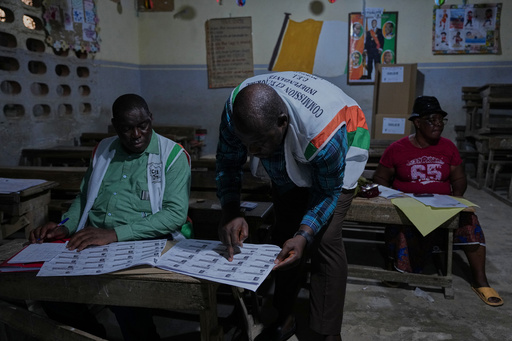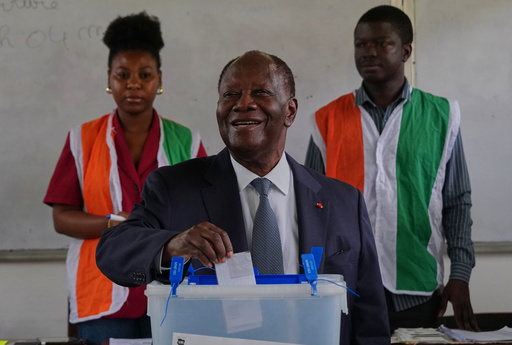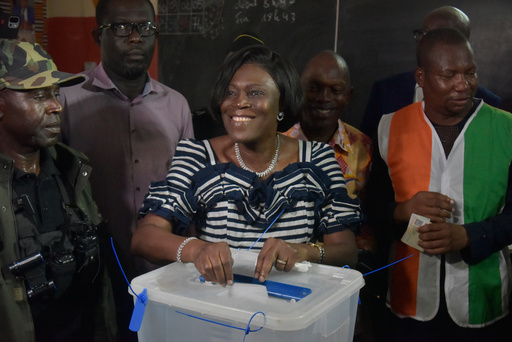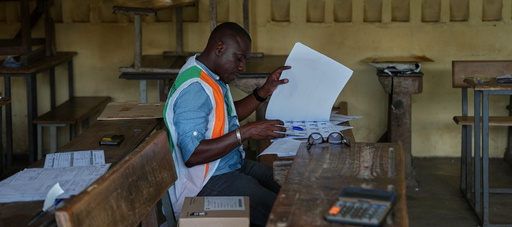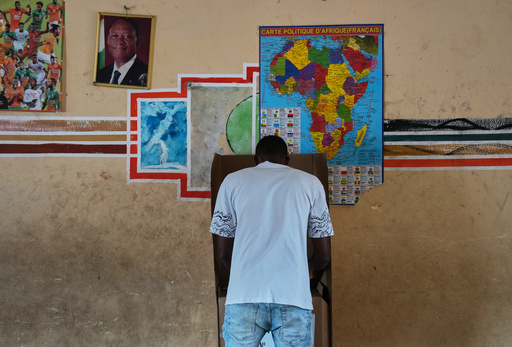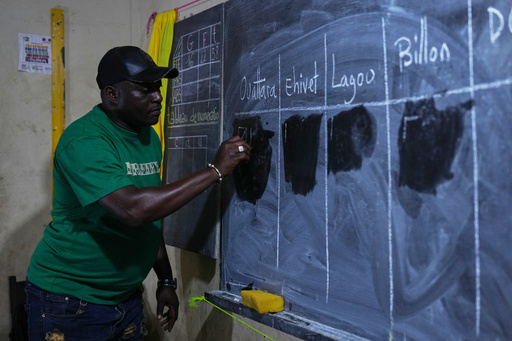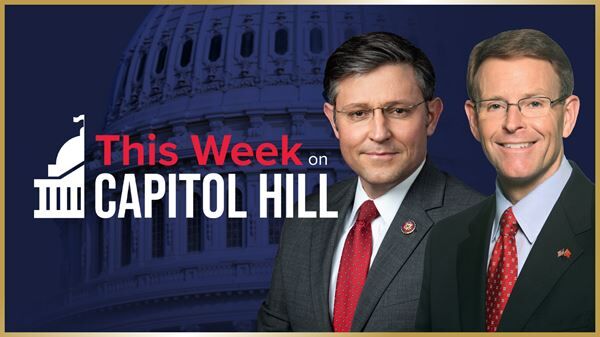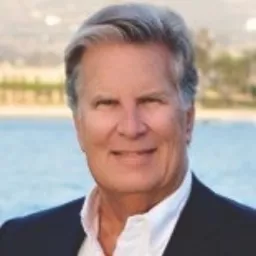Ivory Coast counts votes in key election with incumbent Ouattara predicted to win fourth term
News > Politics & Government News

Audio By Carbonatix
10:37 PM on Friday, October 24
By OPE ADETAYO and CHINEDU ASADU
ABIDJAN, Ivory Coast (AP) — Votes were being counted late Saturday in Ivory Coast after citizens cast their ballots to elect a new leader. Longtime President Alassane Ouattara is seeking a fourth term while his key contenders were barred from the race.
Although the Independent Electoral Commission announced a turnout of 50% based on initial assessment of ballots counted so far, the turnout was much lower in many ballot stations in the main city of Abidjan, according to residents and Associated Press reporters on-site.
Election results were expected between Sunday and Monday, according to Ibrahime Kuibiert Coulibaly, head of the electoral commission.
The election is the latest example of aging men continuing to hold power in Africa, which boasts the youngest population in the world. Cameroon’s Paul Biya, 92, Uganda’s Yoweri Museveni, 81, and Equatorial Guinea’s Teodoro Mbasogo, 83, are some other older African leaders still in power.
Five candidates are jostling for Ivory Coast’s top job, but many see Ouattara, the 83-year-old leader of the world’s biggest producer of cocoa, retaining his seat. If he wins, he will extend his rule to almost two decades. Ouattara’s party, the Rally of Houphouetistes for Democracy and Peace, or RHDP, also holds a majority of seats in parliament.
Ouattara has overseen the country’s economic reconstruction since the civil war, achieving an annual growth rate of 6% backed by a boom in cocoa. However, 37.5% of the country’s 30 million people still live in poverty, and jobs are scarce for young people.
Ouedraogo Issiaka, a scrap metal dealer in the capital of Abidjan, said he is voting to “show my love and support” for Ouattara and his ruling party. “But I understand those who wanted to support someone else and didn’t vote,” said Issiaka, 45, referring to supporters of opposition candidates barred from contesting.
Some 8.7 million people registered to vote. The country’s last two elections saw a voter turnout of slightly above 50%, though analysts predicted a lower general turnout this time.
The election took place in a “calm and peaceful atmosphere,” Yemi Osinbajo, head of the joint ECOWAS-African Union election observer mission, said in a statement. Most opposition leaders and candidates had not publicly shared their assessment of the process as of Saturday evening.
Ouattara described the election as a “vote of trust” after voting in the suburb of Cocody in the capital city.
“It is really important to vote, especially to vote for your president. ... You have to do this in peace,” the Ivorian leader said.
The buildup to the election has been marred by protests against the exclusion of major candidates who could pose a challenge to Ouattara. The final list of registered candidates did not include Tidjane Thiam, a former Credit Suisse executive, and Laurent Gbagbo, a former candidate who still retains the support of a large section of voters.
Their supporters had taken to the streets, with several hundred people arrested. The crackdown has raised the specter of past electoral crises that left at least 3,000 people dead in 2010 and 2011, and almost 100 in 2020.
The disqualification of the key opposition candidates cast doubts on the credibility of the vote. Opposition supporters have accused the Independent Electoral Commission of working in favor of the ruling party.
Civil society leader Pulchérie Gbalet cast doubts on the credibility of Saturday's vote, saying: "It is clear that from the outset, there has been no election ... because the Constitutional Council chose the candidates on political grounds and eliminated the others in a dishonest and unfair manner.”
Ouattara has denied a crackdown on the opposition. He has attracted less scrutiny from the international community and from longtime partner and former colonial ruler France.
“The geopolitical context is favorable to him,” said Séverin Yao Kouamé, a research professor at the country’s University of Bouaké, noting other international priorities.
Four candidates challenge Ouattara, including Simone Gbagbo, a former first lady, and Jean-Louis Billion, a former commerce minister under Ouattara. They have all promised jobs and new agricultural policies. Analysts have said none has any strong chance of winning.
At his final rally in Abidjan on Thursday, Ouattara told his supporters: “The growth has been huge, but we need to continue.”
A former deputy managing director at the International Monetary Fund, Ouatarra’s investment in the public sector and infrastructure has endeared him to his supporters.
___
Asadu reported from Abuja, Nigeria.
